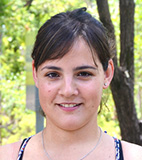Get to know our expert facilitators
 Associate Professor Jenny Povey
Associate Professor Jenny Povey
Course facilitator for Gathering and Analysing Qualitative Data, Data Literacy, Storytelling and Influencing Decision-makers and Survey Design
Associate Professor Jenny Povey is the Deputy Director (Training) at ISSR. In this role Jenny leads the development and implementation of ISSR's training programs. This includes professional short courses aimed at industry and government, tailored capability training for industry and government, Higher Degree Training, external and internal internships/placements, internal staff capability training, and teaching opportunities for ISSR staff in the schools including Honours supervision. In addition to leading this portfolio of work and teaching professional short courses, Jenny continues to lead a Research Group (Social and Educational disadvantage), contribute as an Associate Investigator to research for the ARC Centre of Excellence on Families and Children over the Life Course (the Life Course Centre), and supervise HDR students. She is a psychologist and obtained her BA Honours, MA, and PhD from the Nelson Mandela Metropolitan University in South Africa. Before coming to ISSR, Jenny worked as a Chief Researcher at the Human Sciences Research Council in South Africa in the area of Education effectiveness. She has extensive experience in mixed methods research using administrative data together with survey and qualitative data (semi-structured in-depth interviews from hundreds of participants often at 2-timepoints). Jenny has been teaching the Gathering and Analysing Qualitative Data 3-day short course since 2013.
 Dr Charlotte (Charlie) Young
Dr Charlotte (Charlie) Young
Course facilitator for Gathering and Analysing Qualitative Data
Charlie is a Research Fellow at ISSR. She is a qualitative and interdisciplinary researcher working across public health, health promotion, sociology, and migration studies. Charlotte achieved her PhD at Australian Catholic University and her BSc Honours in Sociology and Social Policy at the University of Bath in the UK. She has developed skills in case study design, conducting interviews, focus groups, observation, document review, and applying critical social theory such as intersectionality. Recently, she has been exploring how the COVID-19 pandemic has impacted migrant and refugee background tertiary students and how young culturally and linguistically diverse social media influencers have been promoting COVID-safe behaviours online. Charlotte also explores immigrant organisations as critical settings to influence health and wellbeing. At ISSR Charlotte is contributing to evaluation research including for state-wide health interventions and a refugee resettlement program.
 Ms Elizabeth (Lizzie) Kennedy
Ms Elizabeth (Lizzie) Kennedy
Course facilitator for Gathering and Analysing Qualitative Data and Survey Design
Lizzie is a Senior Research Assistant at ISSR. She has worked on both quantitative and qualitative research projects for clients including government departments and universities over the last twenty years. She has extensive experience in survey design and project management. In her previous role at Which? (Choice equivalent in the UK) influencing practical policy solutions, Lizzie worked with agencies to conduct qualitative fieldwork among audiences including children and adults. More recently at ISSR Lizzie has conducted individual interviews and facilitated group interviews. As well as conducting the interviews as part of the recent Try, Test and Learn evaluation, Lizzie was also a key contributor in the analysis of the qualitative data. In early 2024, Lizzie completed a project conducting individual interviews of stakeholders and community members in Queensland on the important topic of social isolation and loneliness. Currently, she is managing the fieldwork component of the Community Refugee Integration and Settlement Pilot (CRISP) program evaluation.
 Dr Tomasz Zając
Dr Tomasz Zając
Course facilitator for Survey Design and Data Wrangling with R: An Introduction
Tomasz is a Senior Research Fellow at ISSR. He is a sociologist with over fifteen years of experience in applied social research. Tomasz specialises in quantitative methods, with particular emphasis on longitudinal data analysis. Much of his recent work uses large-scale linked administrative data. Tomasz also has ample experience in survey design and working with survey data. His research interests include individual educational trajectories, especially within tertiary education, as well as labour market outcomes of graduates, social inequality and its impact on young people's educational and professional paths. Tomasz has conducted research and provided methodological advice for numerous institutions across the governmental, non-governmental, and private sectors, including the Australian Government Department of Education, the Polish Ministry of Science and Higher Education, and the NSW Department of Education.
 Ms Elizabeth Hitches
Ms Elizabeth Hitches
Course facilitator for Gathering and Analysing Qualitative Data
Elizabeth researches inclusive education and student voice at a national and international level, with a particular interest in equity, achievement, and wellbeing for students with disability, chronic health conditions, and/or accessibility requirements. She has experience in survey design and drawing on this method to engage with ‘hidden populations’ through anonymous means. She has conducted qualitative analysis of survey and interview data on multiple projects, taking a Grounded Theory or thematic analysis approach, as well employing a priori coding. Elizabeth considers and advocates for how research methods and modes of data collection can support inclusive, accessible, and equitable research participation experiences for a diversity of participants. At ISSR, Elizabeth is contributing to research reviewing outcomes of men’s health interventions. She is also a research officer and research assistant in both qualitative and quantitative research at various universities.
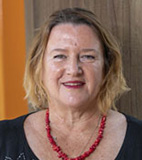 Associate Professor Caroline Salom
Associate Professor Caroline Salom
Course facilitator for Evaluating Social, Health and Human Service Programs
Caroline is an experienced evaluator, principal research fellow, and research group leader with a strong background in training design and delivery. Her research focus is substance use and mental health and their impacts on youth and families. She has also worked in frontline service delivery management — designing and evaluating services, as well as working alongside service providers, statutory authorities and government departments. As well as conducting evaluations at national, state, and local levels, Caroline led the delivery of the Evaluation Capability Program 2017–18 for the Queensland Department of Premier and Cabinet, generating very positive feedback from government stakeholders about the quality of the training and its impact.
 Dr Mark Robinson
Dr Mark Robinson
Course facilitator for Data Literacy, Storytelling and Influencing Decision-makers
Mark is a public health and evaluation specialist who has led the development and delivery of evaluation frameworks across a range of topics and clients. He recently led the development of a monitoring, evaluation, and learning framework for the Queensland Cancer Strategy for Aboriginal and Torres Strait Islander Peoples, and is currently leading the strategic evaluation of a suite of preventive health programs funded by Health and Wellbeing Queensland. Prior to joining ISSR, Mark worked for over a decade at the interface between evidence and policy in Scotland, publishing a number of impactful outputs that have strongly influenced the policy and public discourse on alcohol control in Scotland and beyond. His research was cited in the UK Supreme Court judgment that Minimum Unit Pricing was a legal and proportionate response to Scotland’s problematic relationship with alcohol, and he played a lead role in the multi-component evaluation of this landmark legislation.
 Emily Yorkston
Emily Yorkston
Course facilitator for Evaluating Social, Health and Human Service Programs
Emily is an experienced evaluator and policy analyst whose experience is designing, collecting, and interpreting high quality evidence to improve outcomes for priority groups. She has deep, strategic knowledge of the Australian public sector, working alongside government agencies to design, implement and evaluate large, complex social policy initiatives. Emily is motivated by helping her clients to use evaluation and research to understand the people they serve - consumers, service providers, executive sponsors and advocacy groups - to deliver tailored programs and achieve better outcomes both for people and human service systems. When teaching, Emily builds in examples from her 15 years of industry-based consultancy, so that her students appreciate the differences between the ‘real world’ and theory. It’s her hope that her students learn how to use evaluation as a learning opportunity in their organisations.
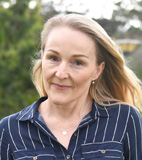 Dr Jenny van der Arend
Dr Jenny van der Arend
Course facilitator for Data Literacy, Storytelling and Influencing Decision-makers
Jenny is a Principal Research Assistant at ISSR. She is a qualified social worker with extensive experience as a project and program manager, policy officer, and researcher, in government and non-government positions, across a number of social policy areas in Australia and internationally. Jenny has successfully led or contributed to qualitative and mixed methods research projects exploring homelessness, social exclusion and disadvantage, at-risk children and young people, domestic and family violence, criminal justice, and disaster management. Her PhD research explored evidence-based policymaking in Australia and highlighted how crucial research translation efforts are in enabling evidence to have impact in policymaking. Prior to commencing at the ISSR, she spent four years as an associate lecturer, drawing on her policy practice experiences to teach policy and public administration courses to undergraduate and postgraduate students.
 Danielle Taylor
Danielle Taylor
Course facilitator for Data Literacy, Storytelling and Influencing Decision-makers
Danielle is a senior research assistant at ISSR. She holds a Master’s degree in Public Health, majoring in Health Promotion and Disease Prevention, from the University of Queensland. She is an experienced project manager, mixed methods researcher, and social science and public health evaluator. She has worked on both small- and large-scale government and industry projects. Danielle has a passion for data visualisation for knowledge translation.
 Associate Professor Richard Brown
Associate Professor Richard Brown
Course facilitator for Social Cost-Benefit Analysis
Richard is a specialist in applied cost-benefit analysis, non-market valuation methodologies, and the economics of international migration. He has extensive advisory experience as an applied project and policy analyst for public and private sector organisations in Australia and internationally, including: the Queensland Office of the Public Guardian on the roll-out of the NDIS; DFAT; CSIRO; various Queensland State Government Departments; NSW Department of Industries; Queensland Competition Authority; Brisbane City Council; and private consultancy companies including KPMG and NineSquared.
Richard has extensive experience designing and conducting training courses and workshops in cost-benefit analysis for governmental and non-governmental agencies, domestically and internationally including government agencies and NGOs in Bahrain, Malaysia, Mauritius, Singapore & South Africa. Recent training and advisory work also covers agencies engaged specifically in the social sectors, including the Department of Family and Social Services (Qld), Singapore and MiET Africa, an NGO engaged in youth education and health programs in Southern Africa.
Richard is an Associate Professor in Economics in the Faculty of Business, Economics and Law at the University of Queensland. He has held positions at the Institute of Social Studies, the Netherlands, University of Kwazulu-Natal, South Africa, and visiting positions at the University of Khartoum, Sudan; The Hubert H. Humphrey Institute, University of Minnesota; Faculty of Economics and King’s College, Cambridge; the Department of Economics and St Antony’s College, Oxford; Department of Economics, University of Vienna.
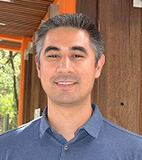 Dr Matthew Curry
Dr Matthew Curry
Course facilitator for Longitudinal Data Analysis, Data Wrangling with R: An Introduction and Regression Analysis
Matthew is a sociologist and research fellow at ISSR. He studies inequality in education and labor market outcomes and intergenerational stratification processes. He has experience with a range of econometric techniques including propensity score methods, event history techniques, and multilevel models. Much of his work uses longitudinal data sets, including large household panel survey, to study parents’ and children’s long-term socioeconomic outcomes.
Dr Macarena San Martin Porter
Course facilitator for Regression Analysis, Introduction to Quantitative Data Analysis and Longitudinal Data Analysis.
Maca is a Research Fellow at the ISSR. She holds a Master degree in Public Health and a PhD from the University of Queensland. She is an experienced quantitative and interdisciplinary researcher with research interests that include mental health and health behaviours during pregnancy, social determinant of health, health policies, and statistics. Maca has strong expertise in data analysis and governance of integrated administrative data. Maca has been a key analyst in a number of research projects at ISSR, working across public health, education, wellbeing, youth justice, and migration studies.
 Dr Miguel Lattz
Dr Miguel Lattz
Course facilitator for Principles of Research Design
Miguel Lattz is a sociologist currently working as a Postdoctoral Research Fellow at ISSR. Miguel has a master’s degree in social policy from the London School of Economics and Political Science (LSE) and a PhD in Sociology from the Australian National University (ANU). With extensive experience, he specialises in designing and executing qualitative and quantitative research projects across public and private sectors. Miguel's expertise lies in evaluating the effectiveness of social policies through data analysis and critical assessment, aiming to inform evidence-based recommendations for improving social programs and interventions. His research focuses on subjective perceptions of inequality and its societal implications, social classes, social stratification, and social mobility.
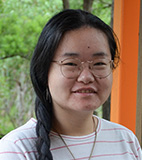 Dr Yanshu Huang
Dr Yanshu Huang
Course facilitator for Introduction to Quantitative Data Analysis and Longitudinal Data Analysis.
Yanshu is a Research Fellow at ISSR. She is an experienced interdisciplinary quantitative researcher with over ten years of quantitative data analysis experience using large longitudinal survey data to answer key social and health research questions in the areas of gender equality, family impacts of chronic illness, and educational outcomes. More recently she has contributed to evaluations of social and health policy and programs in the areas of public health, mental health, social work, and student wellbeing. Finally, she has experience analysing large administrative datasets to answer policy questions.
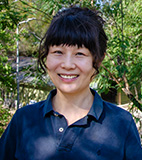 Dr Ning Xiang
Dr Ning Xiang
Course facilitator for Factor Analysis
Ning is a Research Fellow at ISSR. She is an experienced researcher with multi-disciplinary training backgrounds across organisation behaviour, social psychology, and sociology. She has extensive experiences working with large, longitudinal datasets, including the Longitudinal Study of Australian Children (LSAC), the Longitudinal Study of Australian Youth (LSAY), the Longitudinal Study of Indigenous Children (LSIC), and the Household, Income and Labour Dynamics of Australia (HILDA) Survey. She utilises a range of methods for longitudinal data analysis such as random- and fixed-effect panel regression, growth curve models, and event history analysis to investigate the impacts of a range of contextual factors on disadvantaged students’ outcomes (e.g., socio-emotional wellbeing, academic achievement, university participation, and graduate labour market outcomes).
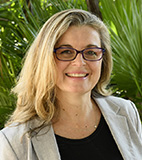 Dr Jacquie McGraw
Dr Jacquie McGraw
Course facilitator for Survey Design
Jacquie is a mixed methods researcher with an interest in men's health behaviour in transformative health services. Jacquie has undertaken a range of quantitative and qualitative studies and has experience working with various data sources. Jacquie has designed surveys for national research projects including consumer surveys for a review for the fourth phase of the Australian National Bowel Cancer Screening Program. Jacquie's PhD research used quantitative methodologies including regression analyses, latent class analysis, conditional growth mixture modelling and partial least squares structural equation modelling. Prior to her postgraduate studies, Jacquie was a social marketer within Queensland Government delivering behaviour change campaigns for public services.
 Dr Sebastian Kocar
Dr Sebastian Kocar
Course facilitator for Survey Design
Sebastian is a research fellow at ISSR. His background is in survey methodology and statistics, and he has contributed to methodological, social, well-being, and higher education research. Following his PhD at the Centre for Social Research and Methods (The Australian National University), he was a Postdoctoral Researcher in the measurement of social and economic change at the Institute for Social Change (University of Tasmania), and held a position as a Research Fellow (Survey Methodology) at the Centre for Longitudinal Studies (University College London). He has taught quantitative research topics, including survey design, survey statistics, and data analysis. Additionally, he has participated in various research projects as an independent consultant for survey data collection and data analytics.
 Dr Kieren Lilly
Dr Kieren Lilly
Course facilitator for Evaluating Social, Health and Human Service Programs
Kieren is a social psychologist and Postdoctoral Research Fellow at ISSR. He has particular expertise in advanced quantitative research methods, including longitudinal, spatial, and quasi-experimental approaches. Kieren earned his PhD at the University of Auckland, where his thesis examined experiences of racial and economic inequality over time and across generations. His more recent research includes projects exploring predictors of radicalisation trajectories, health disparities for LGBTQ+ populations, and social cohesion in Australia and New Zealand. At ISSR, Kieren contributes to mixed-methods evaluations of public health and criminal justice programs across Australia.
Training enquiries
issr.education@uq.edu.au
+61 7 336 56068
Stay up to date with our latest course offerings through the ISSR Training Newsletter
Help us understand your training needs
What training requirements, courses and credentials are important for your organisation?

